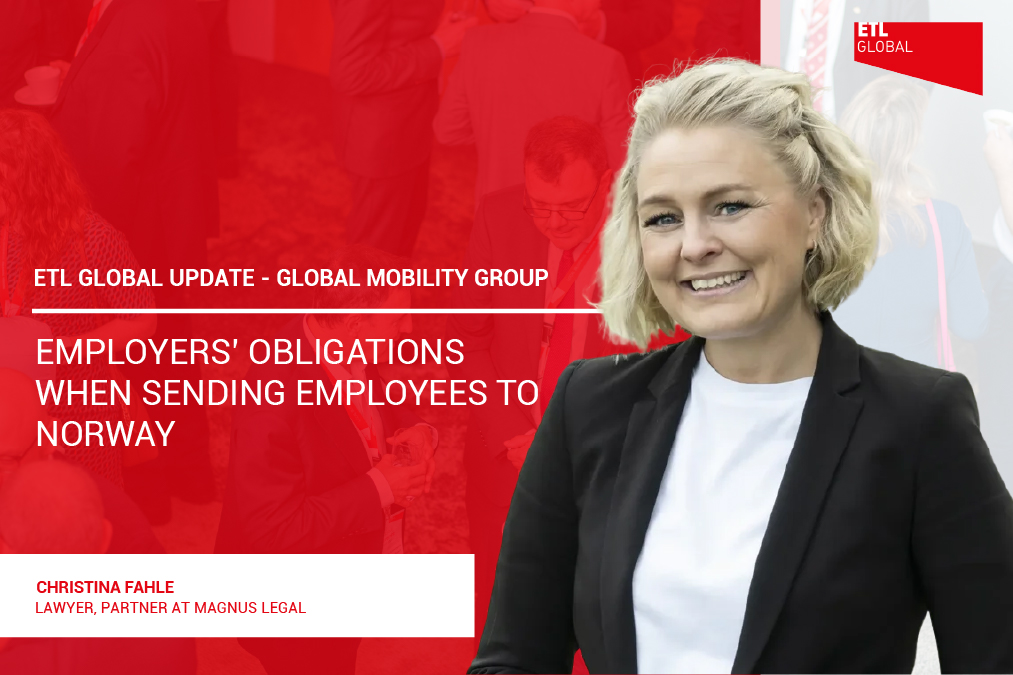Norway is an attractive destination for businesses and professionals, offering a robust economy and high living standards. However, sending employees to work in Norway requires careful attention to a range of legal, administrative, and tax-related obligations. It is crucial to maneuver correctly in areas such as immigration laws, tax regulations, social security and employment requirements to ensure a smooth and compliant relocation process.
ETL GLOBAL Member Magnus Legal has prepared a practical guide designed to support employers through each stage of the process sending personnel to Norway—from assessing whether a candidate qualifies as a skilled worker to understanding work permit rules, salary requirements, and application procedures. The guide addresses both EU/EEA and non-EU recruitment scenarios and outlines key employer responsibilities to ensure legal compliance.
Whether your organisation is recruiting for the first time internationally or a foreign company sending employees to work for a Norwegian company on a project, , this guide offers clear and actionable insights.
To discuss your mobility needs in more detail, contact the ETL GLOBAL Mobility Group for tailored advice and support across jurisdictions.





